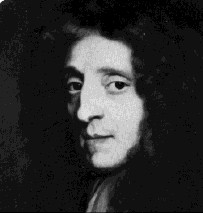| English
philosopher, Enlightenment leader, and advocate for religious toleration.
|
 |
|
John
Locke
|
John Locke's influence
on the Enlightenment and on western thought encompassed philosophy, government,
politics, religion, and what is now called psychology. Like Descartes,
Locke was interested in the problem of epistemology: how we know things.
But Locke did not believe in innate ideas or intuition. He argued that
all ideas are based on sense experience; this approach he called "empiricism."
His Essay Concerning Human Understanding (1690) tried to show that
every branch of human knowledge--including religion--is based on experience
and reflection. Locke had grown up during the Thirty
Years' War, and also experienced religious turmoil in England. He
concluded that religious questions cannot be solved by war. In his Letters
Concerning Toleration he argued that religion is a matter of individual
conscience; therefore it can only win converts through persuasion, never
by force. Liberty of conscience is the "natural right" of each human being.
Government must recognize this and not interfere in religion. Toleration,
not war, is the way to manage religious conflicts. Locke's toleration
was limited to various forms of Protestantism; nevertheless it helped
set a direction toward a broader strategy of pluralism.
Americans adapted Locke's ideas and applied them to the constitutional
settlement guaranteeing religious freedom.
|